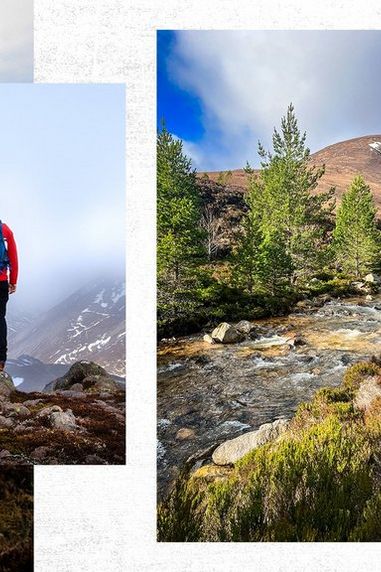On Friday 13th of January 2023, a court ruling was made which may draw a line under wild camping in England. The ruling brings Dartmoor’s camping laws in line with the rest of England, whereby campers must seek and receive permission to camp by the landowner beforehand.

Why is the ruling significant?
The ruling by Chancellor of the High Court, Sir Julian Flaux, is significant because Dartmoor was the last bastion of wild camping in England. Without Dartmoor, wild camping is not permitted anywhere in England.
Why was Dartmoor different to the rest of England?
Until last week’s court ruling, the agreed interpretation of the Dartmoor Commons Act of 1985, allowed public access for walking, horse riding, climbing, and cycling, and overnight camping.
Camping on common land in the rest of England and Wales, without permission, is a civil offence and can become a criminal offence if the wishes of the landlord are not followed.
The judge ruled in favour of Dartmoor landowners Mr and Mrs Darwall, who argued that the bylaw had been misinterpreted and in fact did not permit camping.
When did wild camping in England become illegal?
Wild camping has been illegal in the UK for close to 200 years. The Vagrancy Act of 1824 made sleeping rough, regardless of reason, an offense. Its purpose was to deal with the growing number of homeless, but it also put a stop to wild camping. The law also restricted the public right to roam, nullifying the ancient Pass Laws.
Until the Countryside and Rights of Way Act was passed in 2000, the public had no right of access to common land beyond public paths and bridleways. The CRoW Act was a hugely important piece of legislation, but many believe that it did not go far enough. It certainly didn’t address the needs of wild campers!
How will the ruling impact outdoors people?
Outdoors communities and organisations are rightly disappointed by the ruling and concerned by the precedent it sets. Biking, climbing, walking and camping groups across the UK are alight with discussion and concern. The case has brought the restrictive nature of existing legislation and the disproportionate power of wealthy landowners in these matters, into the public domain.
James MacColl, Head of Policy, Advocacy and Campaigns at the Ramblers said:
“This is a disappointing result which restricts access on Dartmoor and undermines people’s rights to explore nature. We support the National Park Authority in defending the right to wild camp on Dartmoor, and separately, we will continue campaigning to expand open access, bringing nature closer to where people live and making it more equal for everyone to access”
Are England and Wales the only places where wild camping is illegal in Europe?
In much of Europe, for instance Germany, Austria and Italy, wild camping is illegal but tolerated. Wild camping is still legal in Spain and Norway, Sweden and Finland. In France it is a bit hit and miss, it is legal to wild camp in many of the country’s National Parks, but not on all common land.
Closer to home, in Scotland, it is legal to wild camp.
What are the laws in Scotland?
In 1982, Scotland abolished the Vagrancy Act, meaning that camping is, with the occasional exception, legal across the country.
Following the rescinding of the Vagrancy Act, the Land Reform Act of 2003 created a legal framework for land access in the country and led to the Scottish outdoor access code that outlines the regulations of camping and roaming.
Scots are rightly proud of their “right to roam” and there is no evidence that the land is suffering from greater access.
What’s next for Dartmoor?
There’s hope. The Darwalls own a relatively small share of Dartmoor National Park’s land, the largest single share of the National Park land is owned by Duchy of Cornwall (Prince William). Over the coming days, the Dartmoor National Park Authority will engage with the Park’s landowners and stakeholders to seek agreement that the opportunity to wild camp as it existed prior to this judgment continues.
Dr Kevin Bishop, Chief Executive/National Park Officer for Dartmoor National Park Authority, said:
“We maintain that wild camping is an important form of open-air recreation and is a way to enjoy the special qualities of the National Park – for example the dark night skies, sense of wilderness and the tranquillity that can be derived from the commons of Dartmoor. Done properly, and with respect, it has little impact on the environment but can have significant health and wellbeing benefits.”
What does the future hold for wild camping in England?
Currently, the public has “freedom to roam” on only 8% of English land and 3% of English rivers. Unsurprisingly, the question of who should have access to common land and what they should be permitted to do is a hot topic. So hot in fact that it might creep into a party manifesto come the next General Election. In the meantime, the gloves are off, campaigners for greater freedoms have been galvanised by Dartmoor, and they are demanding change.
A statement by the campaign group, Right to Roam UK, read:
“The Right to Roam is more than walking. Our right to belong in the countryside is our right to forge a deep connection with nature and land. Wild camping is pitching a tent when your body is tired and allowing the landscape to hold you where you belong, it's learning about yourself and nature and it's being inspired by looking up at the cosmos like we have done for millennia. Losing the last place to freely camp in England is significant and this ruling is a reminder of why we fight.
We will not back down. We will not let Darwall’s entitled, misanthropic behaviour destroy the only remaining scrap of land where we are permitted to sleep freely under the sky.
We’re going to war.”



